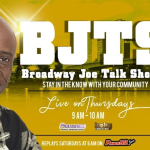Earl Simmons, the snarling yet soulful rapper known as DMX, who had a string of No. 1 albums in the late 1990s and early 2000s but whose personal struggles eventually rivaled his lyrical prowess, died on Friday in White Plains, N.Y. He was 50.
His family announced the death in a statement. He had been on life support at White Plains Hospital after suffering what his family called “a catastrophic cardiac arrest” a week earlier.
“Earl was a warrior who fought till the very end,” the Simmons family said. “He loved his family with all of his heart, and we cherish the times we spent with him.”
On April 2, Mr. Simmons had a heart attack at his home in White Plains. In the days that followed, his representatives said he was on life support “in a vegetative state.” Outside of the hospital, family and friends gathered with hundreds of fans, playing DMX’s music aloud and praying, holding up their arms in the shape of an X.
Mr. Simmons’s music was often menacing and dark, with the occasional nod to Christian spirituality. He committed crimes, served time in different correctional institutions and battled addiction long before he released an album, and his troubled past informed the gritty content and inimitable delivery of his rhymes.
He barked over the chorus of “Get at Me Dog,” the breakout single from his 1998 debut album, “It’s Dark and Hell Is Hot.”
“His throat seems to hold a fuzzbox and a foghorn, and between songs he growled and barked,” Jon Pareles of The New York Times wrote of a Simmons concert performance in 2000. “In his raps, the gangsta life is a living hell, a constant test of loyalty and resolve.”
He rapped with an explosive cadence on “Party Up (Up in Here),” the big hit from his 1999 album “ … And Then There Was X”; raw braggadocio on “Ruff Ryders’ Anthem,” a tribute to his record label on his 1998 debut album, “It’s Dark and Hell Is Hot”; and a more introspective, brooding delivery on “Damien,” a story about making a murderous bargain with a demonic benefactor.







